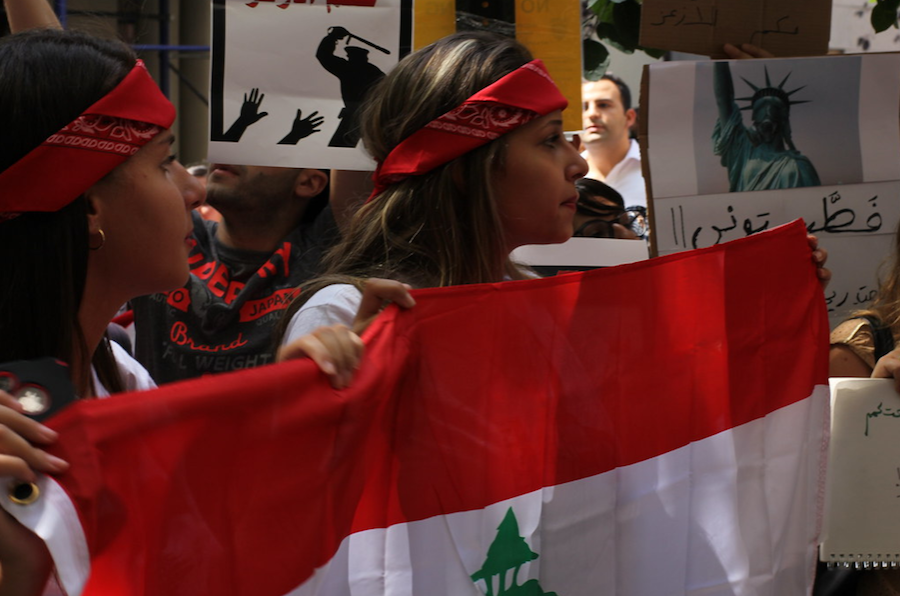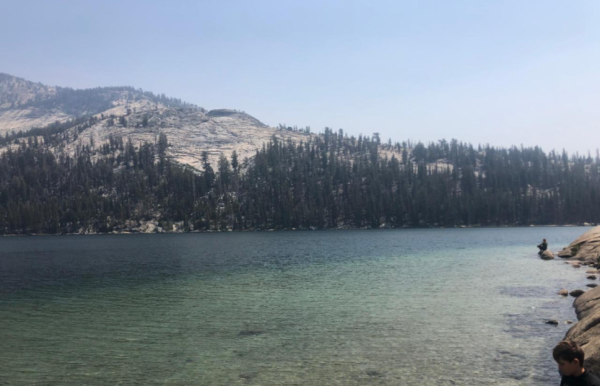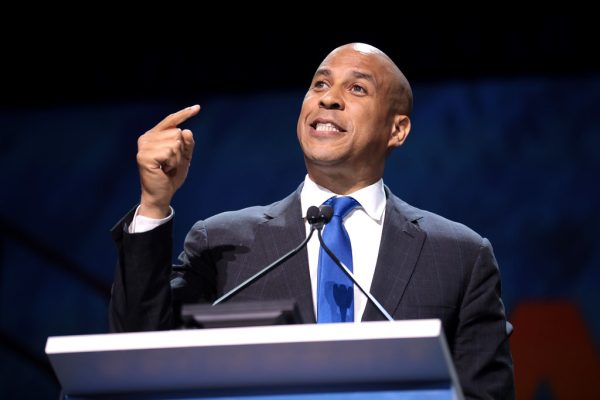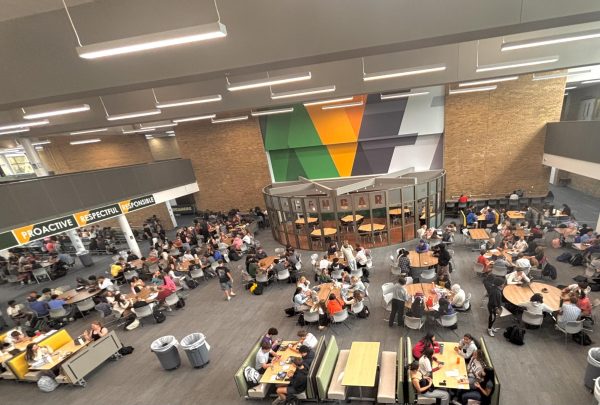What is going on in Lebanon?
PROTEST. Lebanese demonstrators carry flags and signs while marching through the streets, demanding an end to their injustice. Thousands of people have shown up to march in the streets for weeks now, whether in Lebanon or around the world, to protest their treatment by the government. “This may be the biggest achievement for my generation, winning in a clash of this level with our politicians,” said one protestor, said Balil. a young Lebanese engineer.
Lebanon—a small but lively country, known for its place as the party capital of the Middle East.
However, from being bordered by two of the most conflicted and crisis filled nations in the world; Syria and the Palestinian/Israeli State, the nation knows hard times.
Hugging the west end of the Mediterranean Sea, Lebanon is populated by roughly seven million people of all different backgrounds and religions, from Arabs to Phoenicians to Armenians, Muslims, Christians, Jews, or Druze. The Lebanese people are descended from an incredibly diverse background of peoples, from the ancient Canaanites to the Romans, the Ottomans, or the French, the Lebanese state has absorbed its history into an incredibly diverse and historical people.
However, with such incredible diversity and differences comes an easy source of division among the population. Nevertheless, the people of this nation have come to put aside their divisions and come together to make their lives better, joining through a united chant for revolution.
And on Oct. 17, 2019, Lebanon rose up and protested its treatment by the government.
After decades of government corruption, nepotism, and sectarianism, debt crisis, and unmanaged environmental destruction in the form of an enormous fire ravaging the Lebanese forests, the people are peacefully protesting in the cities and around the world.
The protestors have become infamous across social media with their eccentric celebrations, from protestors singing “Baby Shark” to cheer up a scared toddler, to throwing concerts in the streets, the citizens have brought partying into their cause.
Nevertheless, as the pressure on the government persists, the eyes of the world have turned on this small nation, waiting to see how the situation will play out.
Here are their demands:
- Resignation of top government officials
- After decades of government corruption, nepotism, embezzling, and mismanagement, the Lebanese people have decided enough is enough and are demanding that the corrupt officials step down.
- Abolition of Sectarianism within the State
- The current governmental system of Lebanon leaves the country divided into 15 sections based on the different sects among the people, encouraging conflicts between groups. Protesters are demanding this system be abolished and recreated to conform Lebanon into a single governmental state.
- Tax reforms
- One of the main reasons for the recent protests, the constant taxation of citizens has always been met with anger and controversy. However, the latest attempt to tax WhatsApp calls has led to outright rage and became the tipping point to spark the protests.
- Environmental Activism
- After some of the most devastating fires the country has ever seen swept the nation, the government reaction was delayed at best, and the lack of response was met with fury on the part of the thousands who were affected by the wildfires.
- The waste system within the country has also suffered, leaving trash piling up in the streets. Protesters demand an end to this practice as they encourage all demonstrators to pick up garbage they see while in the streets, creating a massive organized countrywide initiative to clean up Lebanon’s streets.
Lebanese people are coming together to support their uprising in any way they can. Lebanese citizen and mother of two, Noha, brings her two daughters to the clean up every day, explaining that “it teaches them the importance of cleaning your country and having a better future.”
- 24-hour access to electricity and clean water
Time can only tell whether the government will relent to the charges, but Prime Minister Saad Hariri has already resigned his office, and more officials are caving to the charges as the days march on.
The people of Lebanon are determined to stick with their cause to the end, buoyed by a determination for change and a new wave of hope and pride spreading through the air.
Ream Awad, a Lebanese-American student at Lakota East High School commented on the protests, saying, “To see all the Lebanese citizens finally forget their religions and political beliefs and just come together as one for their rights has been fascinating. I’m so proud to be Lebanese and to see the change happening in Lebanon and all the hard work that people have done.”
Your donation will support the student journalists of Sycamore High School. Your contribution will allow us to purchase equipment and cover our annual website hosting costs.








![Mock Trial members from Gold and Green team last year pose for a picture in front of the OCLRE building in Columbus. "We all put in so much work [last] year. I know [this] year we’ll come back improved and ready to win!” said Ogunbodede.](https://shsleaf.org/wp-content/uploads/2025/10/IMG_4121-600x411.jpg)

